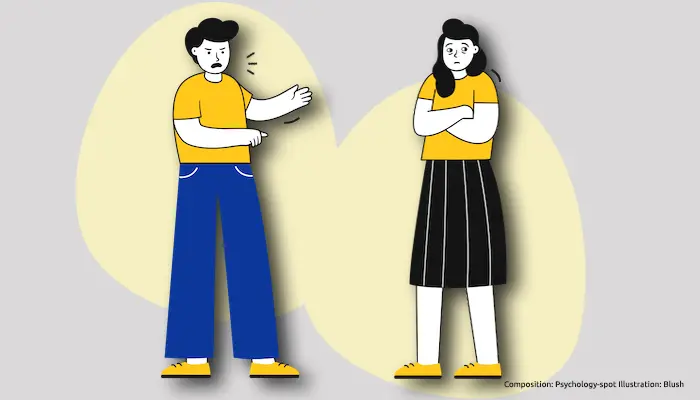
There are a thousand reasons why a relationship can be broken, but conflicts are not one of them, even though we usually blame them for ruptures. In reality, conflicts are usually just the excuse, relationships are broken because we do not know how to manage those conflicts, so they end up generating an insurmountable emotional distance.
Conflicts serve to strengthen the relationship
Conflicts are an extraordinary source of change. They are not negative, but contain the germ of transformation and growth. Stable couples who have been around for years, for example, are not those who have not had conflicts but those who have been able to overcome and use them to strengthen the relationship.
Conflicts are the expression of differences and desires found, so they are also an excellent opportunity to clarify expectations. They serve to reaffirm, on the one hand, the individuality of the members of the couple and, on the other, to encourage them to approach opposite extremes.
Paulo Coelho was not wrong when he said that “Conflicts make love grow”. With no doubts, they put it to the test, so they are the bricks with which we create a resilient relationship, to everything and everyone.
It is in this dialogue, in the search for points in common, that the relationship is strengthened and grows. When everyone gives a little, the relationship strengthens and each member commits a little more, learns to be a little more tolerant and advances another step towards maturity.
The secret to solve conflicts? The emotional offers
John Gottman, a psychologist who studied dating relationships for decades, discovered that one of the secrets to dealing with conflicts of long-lasting relationships are the emotional offers, which are used to establish a connection approximately 86% of the times.
An emotional offer is a sign of affection, attention or any other form of positive connection that one person sends to another. It can be an hug, a caress, a simple look, affectionate words or an act that implies a sign of peace, repentance or emotional connection.
These offers are essential to maintain the emotional bond in the relationship and serve to mitigate the intensity of conflicts. They are a kind of bridge to the understanding that allows to maintain the emotional bond in spite of the differences that may exist.
When one of the member continually rejects these emotional offers, ignoring them or responding with criticism and resentment, or these are missing, is established a psychological distance that, in the long run, increases the differences and makes it impossible to resolve conflicts.
Emotional distance separates more than any conflict
The emotional distance is that which is established when the affective bond has been broken. Its devastating power is such that it can end up turning two people who once loved each other into complete strangers. Emotional distance involves feeling disconnected from the other, even perceiving him as a stranger, usually because the relationship has ceased to satisfy our emotional needs.
The problem is that the more that distance increases, the more unlikely it is that we can resolve conflicts because, suddenly, it’s as if we had no point of contact with the other person. When communication is lost, giving way to silence and indifference, even conflicts lose their meaning because there is a feeling that there is nothing to recover.
Communicate, communicate, communicate…
To avoid that emotional distance is established, we must communicate. To resolve conflicts, it is important to talk about them, express what we feel and desire clearly. At the same time, it is fundamental to be able to listen to the other person and put ourselves in his place, cognitively and emotionally.
Communication is the best antidote against emotional distance, assertive and authentic communication, which aims to solve problems and find common ground so that we can look together in the same direction.



